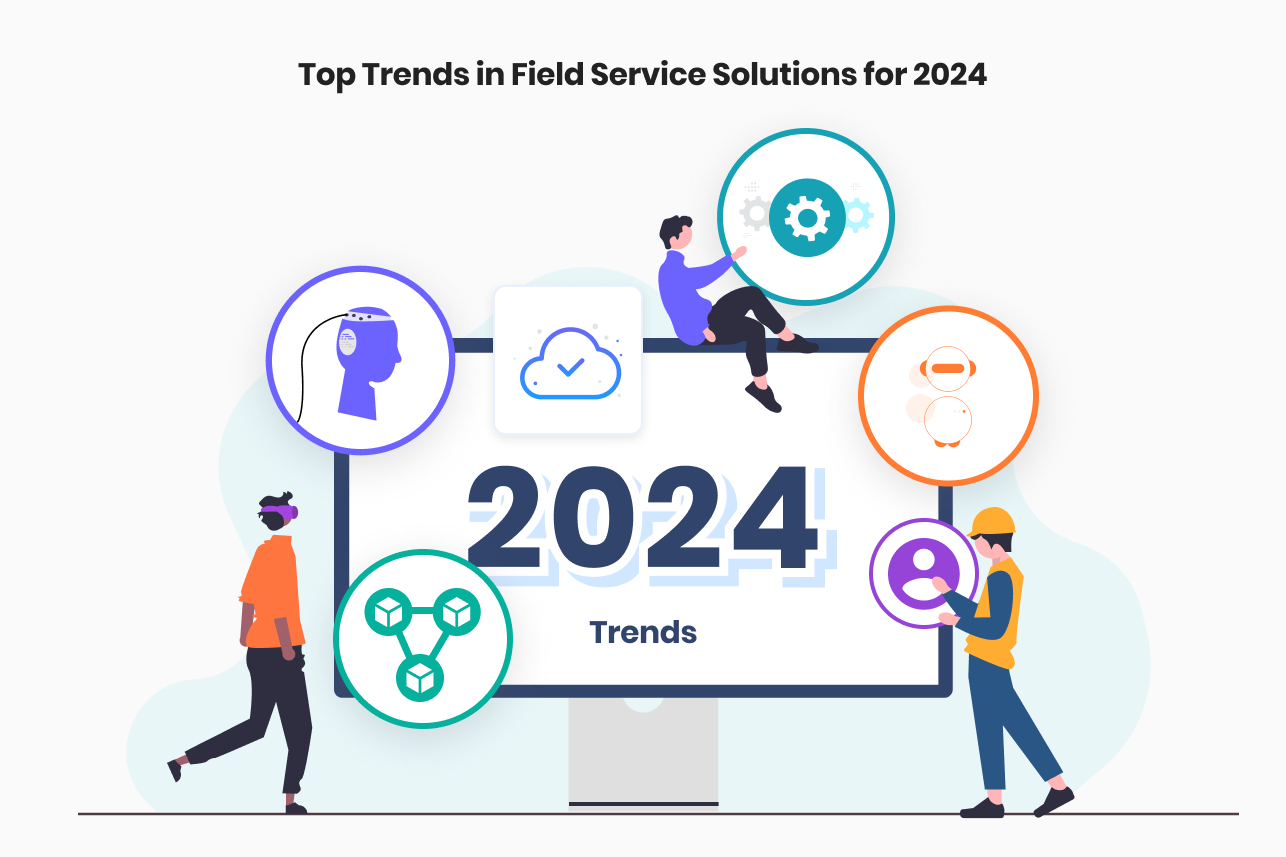In the dynamic landscape of field service management, staying ahead of the curve is crucial for organizations to remain competitive and meet evolving customer expectations. As we delve into 2024, several key trends are shaping the field service industry, driving innovation, efficiency, and enhanced customer experiences. Let’s explore the top trends that are expected to dominate the field service solutions landscape in 2024.
- Advanced Predictive Maintenance
One of the most significant trends in field service solutions for 2024 is the widespread adoption of advanced predictive maintenance techniques. Leveraging technologies such as artificial intelligence (AI), machine learning (ML), and the Internet of Things (IoT), organizations can proactively monitor equipment and assets to predict potential failures before they occur. By analyzing data from sensors and historical maintenance records, field service teams can schedule maintenance tasks at optimal times, minimizing downtime and reducing costs. - Remote Assistance and Augmented Reality
With the rise of remote work and the need for contactless interactions, remote assistance and augmented reality (AR) technologies are becoming indispensable tools for field service technicians. In 2024, we expect to see widespread adoption of AR-powered solutions that enable technicians to receive real-time guidance and support from experts, regardless of their location. Through AR-enabled smart glasses or mobile devices, technicians can overlay digital information onto physical objects, facilitating troubleshooting, repairs, and training sessions with greater efficiency and accuracy. - Integration of Blockchain for Supply Chain Management
Blockchain technology is revolutionizing various industries, and field service management is no exception. In 2024, we anticipate an increased focus on integrating blockchain into field service solutions to enhance supply chain management processes. By leveraging blockchain’s immutable ledger capabilities, organizations can ensure transparency, traceability, and security across their supply chains. This enables better tracking of spare parts, tools, and equipment, as well as improved authentication of service records and warranties, leading to greater trust and accountability in the field service ecosystem. - Sustainability and Green Initiatives
As environmental concerns continue to gain prominence, sustainability and green initiatives are becoming integral parts of field service solutions in 2024. Organizations are increasingly prioritizing eco-friendly practices, such as optimizing route planning to minimize fuel consumption, transitioning to electric or hybrid vehicles, and implementing paperless workflows through digital forms and documentation. By embracing sustainable practices, field service providers not only reduce their carbon footprint but also enhance their brand reputation and appeal to environmentally conscious customers. - Emphasis on Customer Experience and Personalization
In an era of heightened customer expectations, delivering exceptional experiences is paramount for field service organizations in 2024. To meet this demand, companies are investing in technologies that enable personalized interactions and proactive engagement throughout the service lifecycle. From leveraging customer data to anticipate needs and preferences to offering self-service portals and mobile apps for real-time updates and feedback, organizations are focused on enhancing every touchpoint of the customer journey to drive loyalty, satisfaction, and advocacy. - Shift Towards Outcome-Based Service Models
Traditional service models are giving way to outcome-based approaches in 2024, where the emphasis is on delivering measurable results and value to customers rather than simply fixing problems. By offering outcome-based service contracts, field service providers align their incentives with the success of their customers, driving mutual benefits and long-term partnerships. This shift requires organizations to adopt a more consultative approach, focusing on understanding customer goals, defining key performance indicators (KPIs), and continuously delivering tangible outcomes that drive business impact. - Expansion of Field Service Management Platforms
As the complexity of field service operations grows, there is a rising demand for comprehensive field service management platforms that integrate a wide range of functionalities and capabilities. In 2024, we anticipate the expansion of these platforms to encompass not only core field service processes such as scheduling, dispatching, and inventory management but also advanced analytics, workforce optimization, and IoT-driven predictive maintenance. By providing a unified solution that addresses the diverse needs of field service organizations, these platforms enable greater efficiency, collaboration, and agility across the entire service delivery ecosystem.
In conclusion, the field service solutions landscape in 2024 is characterized by a convergence of technologies, shifting customer expectations, and a growing emphasis on sustainability and value-driven outcomes. By embracing these trends and leveraging innovative solutions, organizations can optimize their field service operations, deliver superior customer experiences, and position themselves for success in an increasingly competitive market. As we navigate the challenges and opportunities ahead, staying agile, adaptive, and customer-centric will be key to thriving in the evolving field service industry landscape.
